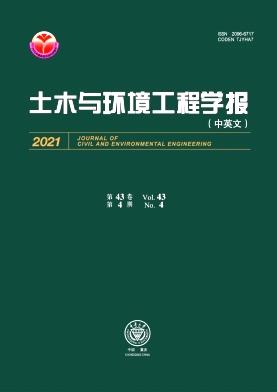Strength Properties and Sustainability of Recycled Plastic Tiles: Flammability, Water Absorption, and Chemical Tolerance
Q2 Engineering
Tumu yu Huanjing Gongcheng Xuebao/Journal of Civil and Environmental Engineering
Pub Date : 2021-01-01
DOI:10.37421/2165-784X.2021.11.404
引用次数: 1
Abstract
The cost of construction materials, as well as the natural resources needed to manufacture the materials in an enabling climate, is affecting the world's construction industry, which is expanding at an unprecedented pace. Plastic wastes are a significant environmental concern due to their widespread use, non-biodegradability, and contamination from incineration and landfill, recycling these wastes into tiles would be a significant benefit. This investigation's goal is to study the mechanical qualities of tiles made from PET (Polyethylene Terephthalate) wastes, fly ash, and river sand aggregates. PET wastes were added to other aggregates in various percentages of 100 percent, 90 percent, 70 percent, 50 percent, and 30 percent by weight. The assessment of physical and mechanical properties reveals that, in terms of material density, weight, and flammability resistance, the tiles containing 30% plastic waste outperforms the other proportion of waste. According to the results, this composite tile has a very low percent porosity value (2.9 - 0.11 percent) as compared to cement or ceramic tiles. In addition, the composite tile (PT1) with 30% PET and 35% fly ash and sand demonstrated decreased flammability with a linear burning rate of 7.68 mm/min and enhanced compressive strength of 11.07 N/ mm2. There was no significant difference in weight after soaked in different acid and base solutions for seven days. Finally, as tile products, PET plastic tiles have good strength, chemical tolerance, low flammability, low water absorption, and are environmentally friendly. This possibility would not only reduce the cost of construction materials, but it would also serve as a waste diversion, reducing the environmental impact of plastic waste disposal.再生塑料瓷砖的强度特性和可持续性:可燃性、吸水性和耐化学性
建筑材料的成本,以及在有利的气候条件下制造这些材料所需的自然资源,正在影响着以前所未有的速度扩张的世界建筑业。塑料废物是一个重大的环境问题,因为它们的广泛使用,不可生物降解,和污染的焚烧和填埋,回收这些废物到瓷砖将是一个显著的好处。本研究的目的是研究由PET(聚对苯二甲酸乙二醇酯)废物、粉煤灰和河沙骨料制成的瓷砖的机械质量。PET废物按重量的100%、90%、70%、50%和30%的不同百分比添加到其他骨料中。物理和机械性能的评估表明,在材料密度,重量和可燃性方面,含有30%塑料废物的瓷砖优于其他比例的废物。结果表明,与水泥或瓷砖相比,这种复合砖具有非常低的孔隙率(2.9 - 0.11%)。此外,含有30% PET和35%粉煤灰和沙子的复合瓦(PT1)的可燃性降低,线性燃烧速率为7.68 mm/min,抗压强度提高11.07 N/ mm2。不同酸碱溶液浸泡7 d后,其重量无显著差异。最后,作为瓷砖制品,PET塑料瓷砖强度好,耐化学药品,易燃性低,吸水率低,环保。这种可能性不仅可以降低建筑材料的成本,而且还可以作为废物转移,减少塑料废物处理对环境的影响。
本文章由计算机程序翻译,如有差异,请以英文原文为准。
求助全文
约1分钟内获得全文
求助全文
来源期刊

Tumu yu Huanjing Gongcheng Xuebao/Journal of Civil and Environmental Engineering
Engineering-Architecture
CiteScore
1.30
自引率
0.00%
发文量
5346
 求助内容:
求助内容: 应助结果提醒方式:
应助结果提醒方式:


